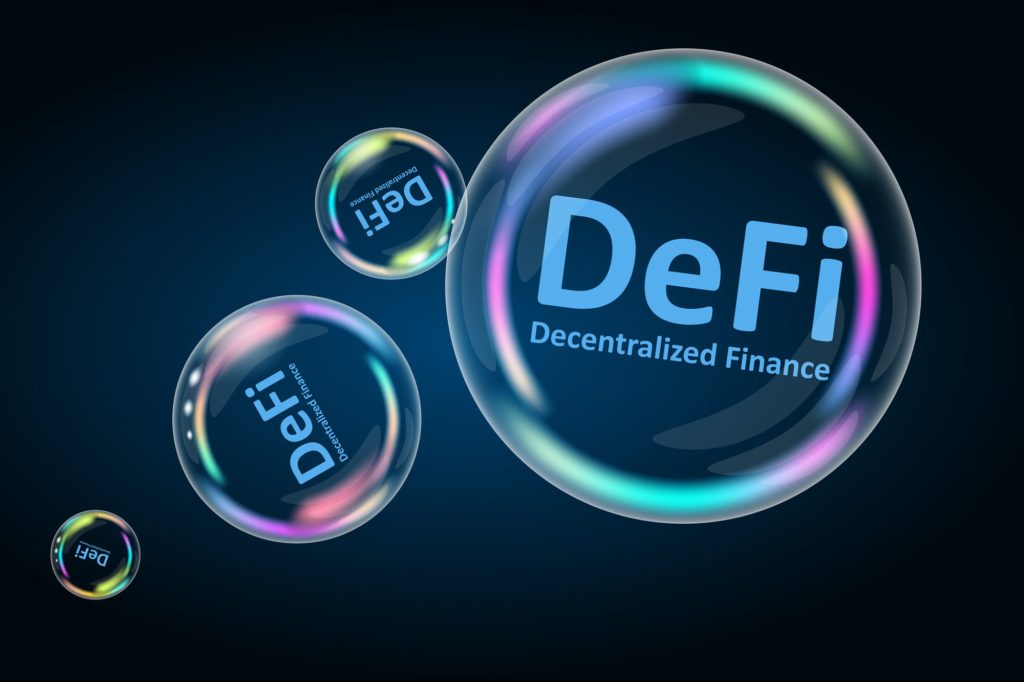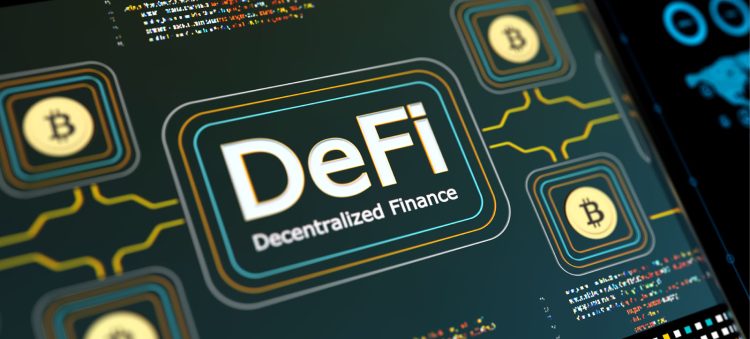The emergence of Decentralized Finance (DeFi) has been one of the most exciting and disruptive developments in the world of blockchain technology. DeFi represents a shift away from traditional, centralized financial systems, enabling individuals to borrow, lend, trade, and invest without the need for intermediaries such as banks, brokers, or financial institutions. Powered by smart contracts and blockchain, DeFi has the potential to revolutionize global finance by offering greater accessibility, transparency, and efficiency.
However, as DeFi platforms and decentralized applications (dApps) continue to grow in popularity and usage, governments and regulatory bodies around the world are increasingly concerned about the risks and vulnerabilities that these systems present. While DeFi is hailed for its potential to democratize finance, it also raises questions around consumer protection, financial stability, money laundering, and taxation. As a result, there is growing speculation that the rise of DeFi could prompt governments to impose stricter regulations on blockchain technology and its applications.
In this article, we will explore the potential regulatory challenges posed by DeFi, how these concerns may influence government policy, and whether we are likely to see the implementation of more stringent regulations in response to the DeFi movement.
1. The Growth of DeFi and Its Implications
DeFi’s rapid growth has caught the attention of regulators due to its decentralized nature, its ability to bypass traditional financial intermediaries, and the complexities involved in its operation. Some key aspects of DeFi include:
A. Decentralized Exchanges (DEXs)
Decentralized exchanges allow users to trade cryptocurrencies without the need for a central authority, eliminating the risks associated with traditional exchanges, such as hacking, fraud, and mismanagement of funds.
B. Lending and Borrowing Platforms
DeFi platforms like Aave and Compound enable users to lend and borrow cryptocurrencies without relying on traditional banks or lending institutions. These platforms use smart contracts to manage transactions autonomously.
C. Yield Farming and Staking
Yield farming, also known as liquidity mining, enables users to earn interest by providing liquidity to DeFi platforms. Similarly, staking allows users to lock their crypto assets in a network in return for rewards, often involving governance tokens.
D. Synthetic Assets and Derivatives
DeFi enables the creation of synthetic assets—derivatives that mimic the value of real-world assets (such as stocks, commodities, or real estate)—without relying on centralized financial institutions.
Despite these innovations, the lack of regulation in the DeFi space has created several concerns:
- Fraud and Scams: Without regulatory oversight, users are at risk of encountering fraudulent platforms or rug pulls, where project developers suddenly abandon a project, causing the value of assets to plummet.
- Market Manipulation: DeFi platforms are susceptible to market manipulation through flash loan attacks or other tactics that can artificially inflate or deflate asset prices.
- Illicit Activities: The pseudonymous nature of DeFi transactions can make it easier for bad actors to engage in illegal activities such as money laundering, terrorist financing, and tax evasion.
These risks have prompted discussions about how governments will respond to the rise of DeFi and its potential impact on global financial systems.
2. Regulatory Concerns That Could Prompt Stricter Regulations
Several key concerns are driving governments and financial regulators to consider more stringent regulations for DeFi platforms and blockchain applications. These concerns include:
A. Financial Stability Risks
One of the most significant concerns raised by the rise of DeFi is its potential to undermine financial stability. DeFi platforms operate outside the traditional banking and regulatory frameworks, which means they are not subject to the same capital reserve requirements, liquidity controls, and supervision as conventional financial institutions.
- The absence of a central authority means that there is no safety net to protect users in the event of platform failure, smart contract bugs, or security breaches.
- DeFi’s reliance on algorithmic stablecoins (like DAI or UST) and leverage to amplify returns introduces additional systemic risk if the value of these tokens becomes volatile or fails to maintain their peg.
Given the rapid growth and the unregulated nature of DeFi, regulators may be concerned about the risk of a financial crisis if there is a sudden collapse in the DeFi market or if a large number of users experience losses due to vulnerabilities in the system.
B. Consumer Protection
Without regulation, DeFi platforms are not required to meet the same standards for consumer protection that traditional financial institutions are held to. In particular:
- Risk Disclosure: Users may not be adequately informed about the risks involved in using DeFi platforms, particularly with more complex instruments like yield farming or leveraged trading.
- Fraud and Scams: The anonymity provided by blockchain transactions can make it easier for malicious actors to perpetrate fraud, such as pump-and-dump schemes, and rug pulls, where developers abandon projects, leaving investors with worthless tokens.
Governments may see the need for regulations to ensure that users are adequately protected and that transparency is maintained, particularly around the terms of financial agreements on DeFi platforms.
C. Anti-Money Laundering (AML) and Counter-Terrorism Financing (CTF)
Blockchain’s pseudonymous nature poses significant challenges for regulators in combating money laundering, terrorist financing, and other illicit activities. Since DeFi platforms typically do not require identity verification (KYC—Know Your Customer), users can conduct transactions across borders without disclosing their identity.
- Cross-border transactions are particularly problematic, as cryptocurrencies are not bound by national borders and can be sent or received without intervention from central authorities.
- Money laundering risks can be amplified by the ease of transferring funds anonymously between DeFi protocols, often using privacy coins or mixing services.
Governments may push for stricter KYC and AML requirements, potentially forcing DeFi projects to comply with regulatory frameworks similar to those governing traditional financial institutions. Such measures could involve transaction reporting, mandatory user identity verification, and cooperation with law enforcement to trace suspicious activity.
D. Taxation and Revenue Loss
Governments around the world are concerned that the rise of DeFi could lead to tax evasion due to the anonymity offered by blockchain networks. DeFi platforms often facilitate transactions that are difficult to track and monitor for tax compliance.
- Capital gains taxes, income taxes, and transaction taxes are critical sources of revenue for governments, and the ability of individuals to bypass tax regulations through decentralized platforms could result in a loss of tax revenue.
- Governments may be forced to develop new tax frameworks that apply specifically to decentralized platforms, ensuring that users and developers pay their fair share of taxes.

3. How Governments Are Responding to DeFi
While the regulatory response to DeFi is still evolving, several governments and regulatory bodies are already taking steps to address the challenges posed by decentralized finance:
A. Clearer Regulations for Stablecoins
Stablecoins have become a cornerstone of DeFi ecosystems, providing liquidity and stability to decentralized platforms. In response to concerns over financial stability and consumer protection, some governments are introducing clearer regulations for stablecoin issuers:
- The U.S. Securities and Exchange Commission (SEC) and Commodity Futures Trading Commission (CFTC) are exploring regulations for stablecoin issuance to ensure they are backed by reserve assets and are subject to auditing and transparency requirements.
- Europe’s Markets in Crypto-assets (MiCA) regulation also seeks to establish clear rules for stablecoins, including requirements for reserve management, consumer protection, and capital adequacy for issuers.
B. Enforcement of Anti-Money Laundering (AML) Laws
Regulatory bodies are increasingly requiring DeFi platforms to comply with anti-money laundering (AML) and know-your-customer (KYC) regulations to prevent illicit activities.
- Financial Action Task Force (FATF), an international regulatory body, has issued guidelines for virtual asset service providers (VASPs) to comply with AML laws, urging DeFi platforms to conduct user identity verification and transaction monitoring.
- Governments may force decentralized platforms to adopt compliance measures similar to traditional financial institutions, such as implementing transaction reporting and ensuring that users undergo identity verification before accessing services.
C. Proposals for Global Coordination
As DeFi is a global phenomenon, international coordination will be crucial in addressing the risks and challenges associated with decentralized finance. Regulators are increasingly recognizing the need to work together to create international standards for DeFi platforms.
- The G7 and G20 have begun discussing frameworks for regulating cryptocurrencies and DeFi platforms, focusing on issues like market integrity, consumer protection, and financial stability.
- Initiatives like the International Monetary Fund (IMF) and World Bank are exploring the potential for global collaboration in regulating decentralized financial systems.
4. Conclusion: The Future of DeFi Regulation
The rise of DeFi is undeniably reshaping the financial landscape, offering greater access and efficiency in financial services. However, the lack of regulation in this space has raised significant concerns regarding consumer protection, financial stability, and security.
While some governments are hesitant to overregulate blockchain and DeFi due to concerns about stifling innovation, it is likely that the rapid growth of DeFi will prompt the introduction of stricter regulations in the coming years. Governments may focus on stablecoins, AML/KYC compliance, taxation, and consumer protection as key areas to address, while still allowing space for innovation.
Ultimately, the challenge for regulators will be to strike a balance between fostering innovation and ensuring the stability and security of the global financial system. As DeFi continues to evolve, governments will need to adapt and respond with dynamic, flexible regulatory frameworks that support the benefits of decentralized finance while mitigating its risks.













































